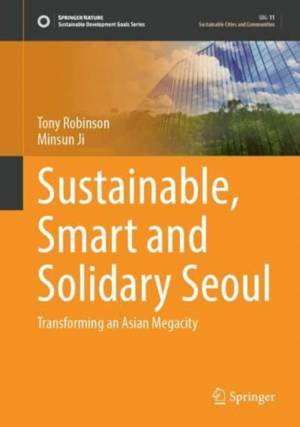
- Afhalen na 1 uur in een winkel met voorraad
- Gratis thuislevering in België vanaf € 30
- Ruim aanbod met 7 miljoen producten
- Afhalen na 1 uur in een winkel met voorraad
- Gratis thuislevering in België vanaf € 30
- Ruim aanbod met 7 miljoen producten
Omschrijving
This book showcases how innovative state policy in Korea transformed Seoul from one of the world's most impoverished, polluted, and congested cities into a global leader in green urban planning, smart city innovations, and social economy initiatives that have dramatically improved the local quality of life. Today, Seoul's urban planning innovations are increasingly touted as replicable best practices for export to cities across the globe.
This book describes how innovative state policy has made Seoul a world leader in sustainable, smart, and solidary urban initiatives. Beginning in the 1960s, Seoul led the fastest urbanization and modernization project in world history, becoming a colossal 26-million-person metropolitan region and one of the largest footprints of humanity on earth, transforming the nation from one of the world's poorest to having the 10th largest GDP in 2020.
Today, Seoul has become one of the most productive and innovative urban agglomerations onearth. Seoul's residents enjoy the world's highest penetration of high-speed internet, a model mass transit system, and advanced smart-city technologies. The vast city has become increasingly green and sustainable, while also recycling about 90% of all waste. Seoul has become a leader in social economy innovations like cooperative villages, mutual benefit societies, and social investment funds that advance equitable development goals amid a booming capitalist economy.
To broaden our imagination of what good urbanism can achieve, this book reviews Seoul's recent innovations in smart, sustainable, and solidary urbanism, including: green urban planning, sustainable development through recycling and reuse, well-managed mass transit, smart city design, and solidarity economy initiatives.
Specificaties
Betrokkenen
- Auteur(s):
- Uitgeverij:
Inhoud
- Aantal bladzijden:
- 175
- Taal:
- Engels
- Reeks:
Eigenschappen
- Productcode (EAN):
- 9783031135941
- Verschijningsdatum:
- 1/10/2022
- Uitvoering:
- Hardcover
- Formaat:
- Genaaid
- Afmetingen:
- 180 mm x 257 mm
- Gewicht:
- 589 g

Alleen bij Standaard Boekhandel
Beoordelingen
We publiceren alleen reviews die voldoen aan de voorwaarden voor reviews. Bekijk onze voorwaarden voor reviews.











